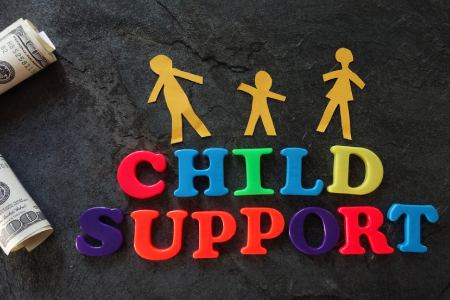Court-ordered child support takes care of the financial needs of a child. When it does not get paid, the child is vulnerable to negative consequences across various aspects of their life.
A common question from many older children or custodial parents is,
How far back can child support be claimed?
Certain restrictions to claiming child support can become complicated. It can be quite difficult to navigate the legal process to get the money owed from the noncustodial parent.
Consulting with a lawyer is typically the best way to ensure you get the appropriate child support. Act quickly to get the process started to limit losses in back child support is recommended.
Table of Contents
What is Back Child Support?
Child support agreements include specific funds that are allocated for the child’s needs. Unfortunately, these agreements are frequently not abided by, resulting in back child support.
Back child support references the difference between what a parent was supposed to pay and what a parent actually paid. This may range from a short payments gap or even for years. The legal term for this is child support “in arrears.”
The custodial parent cannot enforce a child support agreement on their own. They must go through the proper legal channels.
Courts can force the payment of back child support. Florida law also allows the court to force the payment of the full back child support owed with interest. If payments have been in arrears for an extended period of time, the interest on the funds owed can increase the total owed significantly.
Back child support is brought up when one parent fails to fully follow the terms of a child support agreement.
When Is Back Child Support Required to Be Paid?
The courts are strict regarding back child support.
Back child support must be paid when one parent misses one or more required payments. Children have ongoing needs, and Florida courts recognize this, providing the options for legal recourse and specific actions to collect the money that is owed under the child support agreement.

There are varying actions that may be performed to collect back child support. One option is for the custodial parent to ask the court to garnish the other parent’s wages. After this request is submitted, the court can order the other parent’s employer to deduct funds from their wages to pay for the back child support. If there is a court order, the employer must comply.
In the busy times of raising a child, some people do not immediately pay attention to missing payments. Either they do not know what to do, are hoping the payments will restart soon, or other potential circumstances may exist.
When this occurs, there may be many missing payments. But that does not mean all of that money is forever lost. This is true even if it occurs over a long period of time.
What Is the Statute of Limitations for Back Child Support?
Statutes of limitation are a concern for many people when considering taking legal action against someone. Rightly so. Many areas of the law have quite strict statute limitations to bring a case to court.
However, Florida does not have a statute of limitations for collecting unpaid child support.
So, how far back can you sue for child support? It can go all the way back to the child’s birth, if applicable. One parent can seek legal recourse against the other parent at any point to get back child support.
This shows how serious the State of Florida deals with parents who are bound under a child support agreement to financially support their children.
The Florida Statutes allow retroactive child support to be calculated going back two years or the date of birth of the child, but it cannot exceed two years. As mentioned above, this would include interest on the missed payments.
Does Back Child Support Go to the Child or Parent?
This is a frequent follow-up question: “How far back can child support be claimed?”
Generally speaking, back child support will go to the parent (i.e., the one who has been the custodial parent). When child support is in arrears, it is frequent while the child is still a juvenile, and the money collected is used to care for the child’s needs. But this is not always the case.
In some circumstances, an “adult child” might have an existing child support arrangement. They may still be in high school after they reach eighteen or have a similar situation where an arrangement is made.
This “adult child” may have legal standing to sue the noncustodial parent for missed payments, but these funds will typically go to the custodial parent.
One exception to this could be when an “adult child” acts as the estate representative for the parent receiving the back child support. This might be due to health reasons or legal issues.
Why Consult with a Lawyer
Child support payments are a legal obligation that sustains the financial needs of a child. The main goal of Florida’s family courts is to ensure children are provided for appropriately, and strong legislation exists to support families who need it.
Consulting with a lawyer for back child support is important to ensure you are not missing out on any potential payments. If you have a child support agreement with the other parent of your child or children, you are entitled to that money under the law.
Because child support law is complex, it is key to have a legal advocate on your side. An attorney with expertise in child support lawyer can help you to navigate the process of getting back child support.
Golden Key Law can help. We are compassionate and dedicated attorneys with a lot of experience helping Florida families.
Contact us today to discuss the legal options to get the best outcome. We are strong advocates for our clients and know all too well the consequences of inaction regarding back child support.
Call 727-800-4331 to schedule a consultation with a Child Support Lawyer.

